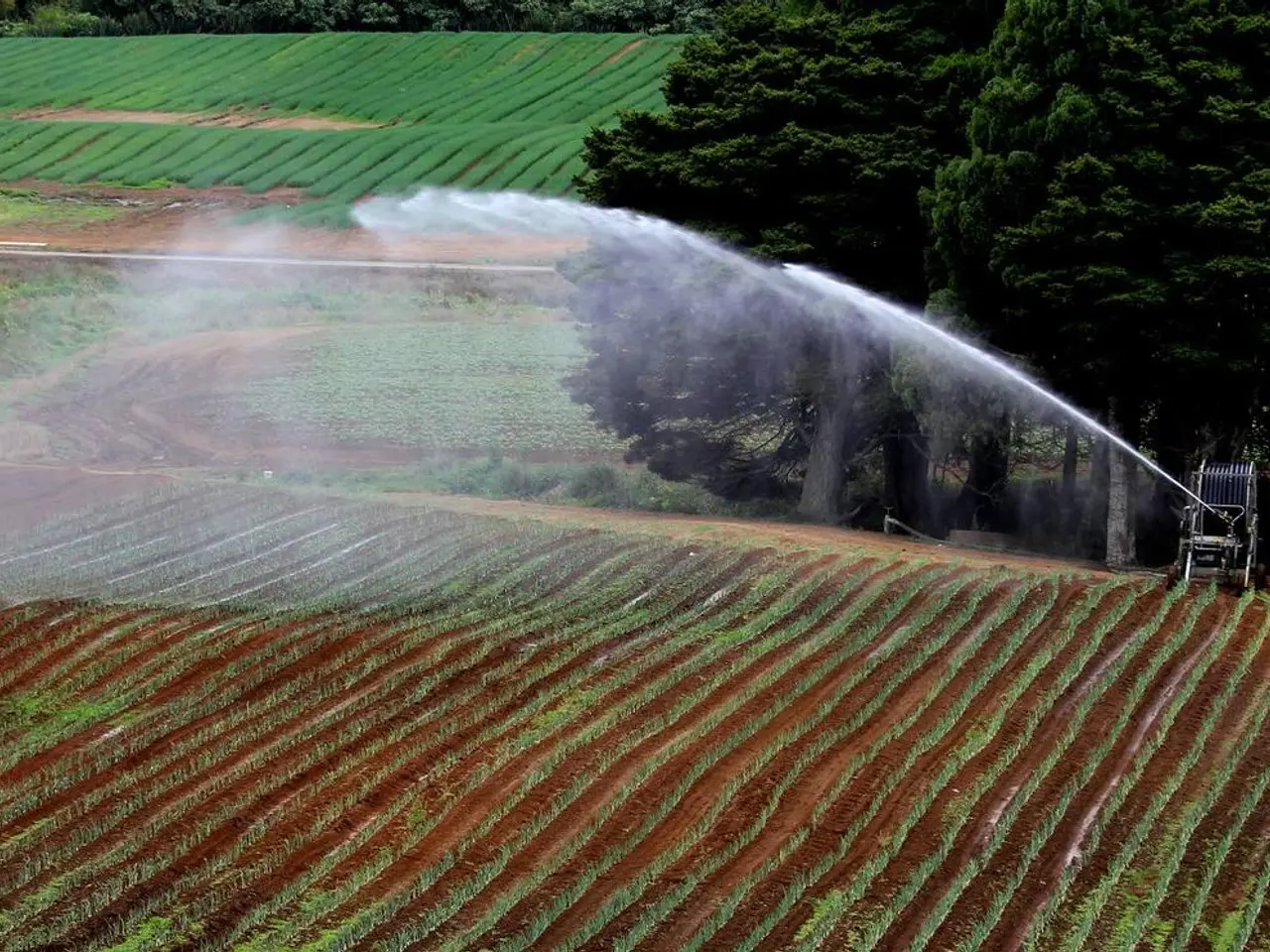Guide to Sustainable Money Management through Permaculture Economic Structures
In the quest for a greener and more equitable future, the concept of permaculture finance is gaining traction. This innovative approach applies the principles of permaculture - sustainability, regenerative design, and systemic interconnectedness - to financial systems. The goal is to create resilient, equitable, and regenerative economic models that foster financial freedom and sustainable living.
Permaculture finance offers a host of practical applications. One such application is the design of economic systems that heal and replenish natural and human resources, moving away from extractive financial models towards those inspired by living systems. This shift integrates empathy and regeneration into governance and finance structures, supporting long-term sustainability.
Another application is the support of agroecological and green micro-enterprises, particularly among marginalized rural populations. These initiatives generate sustainable income while promoting soil health, biodiversity, and carbon sequestration.
Permaculture finance also enables local self-reliance and circular economies through financing small-scale regenerative farming and eco-enterprises. This funding supports technologies and systems such as no-till farming with low diesel dependency, bio-fertilizers, cover crops, and compost teas, helping maintain soil health and reduce external inputs.
The focus on the triple bottom line - balancing social equity, environmental health, and financial viability - is another key aspect of permaculture finance. It recognizes externalities often ignored in conventional accounting and seeks cost-effective sustainable agriculture investments that can reduce systemic vulnerabilities such as hunger.
Permaculture finance also fosters community-based finance models such as cooperatives, farmer-producer organizations, and crowdsourced funding platforms. These models democratize access to capital and empower local stakeholders to participate in resilient, regenerative economy building.
The potential of permaculture finance extends beyond the financial realm. It has the power to create a more sustainable and fulfilling life. The concept of "obtaining a yield" is a key theme in permaculture and achieving financial freedom. Cooperative ownership and decision-making are key strategies in successful permaculture economies, fostering collaborative decision-making and equitable distribution of resources.
Technology plays a crucial role in permaculture finance, enhancing transparency and traceability in practices and making it easier to set up mutual credit systems for local trading of goods and services. Community currencies and exchange systems are also key strategies, encouraging local spending and stimulating the local economy.
Eco-friendly finance prioritizes environmental sustainability and social responsibility, helping us make a better future for everyone and the planet. By embracing permaculture finance, we can move towards a future where financial freedom is grounded in ecological stewardship and social justice, promoting sustainable living through integrated, regenerative financial approaches.
In conclusion, permaculture finance offers a promising avenue for a greener, more equitable, and more sustainable future. By adopting its principles, we can create economic systems that not only support our financial freedom but also nurture our environment and communities.
- Permaculture finance supports agroecological and green micro-enterprises among marginalized populations, promoting soil health, biodiversity, and carbon sequestration.
- The focus of permaculture finance is on the triple bottom line, balancing social equity, environmental health, and financial viability, fostering sustainable agriculture investments.
- Permaculture finance encourages community-based finance models, such as cooperatives, farmer-producer organizations, and crowdsourced funding platforms, democratizing access to financial resources.
- By adopting the principles of permaculture finance, we can create economic systems that not only foster our financial freedom but also nurture our environment and communities, promoting a greener, more equitable, and sustainable future.




